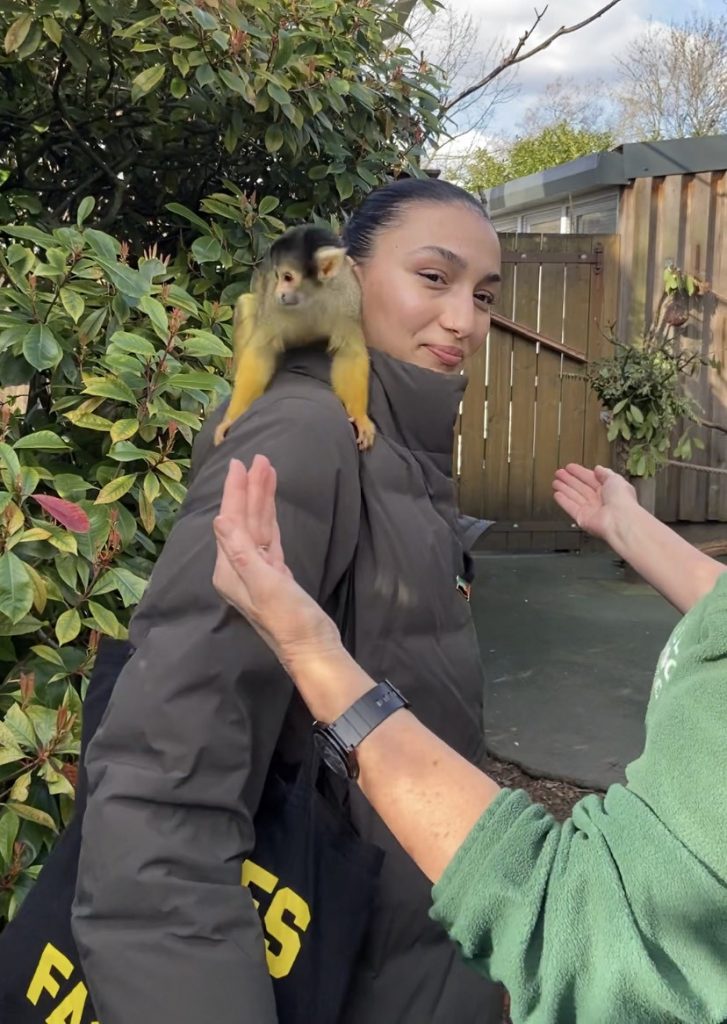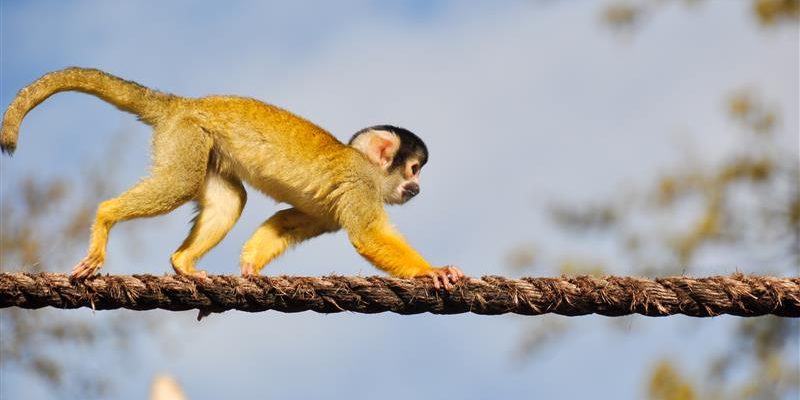The annual field trip to London Zoo is a key highlight of our interdisciplinary Level 6 option module, available to students across all four of our BSc Psychology degrees (Psychology; Cognitive & Clinical Neuroscience; Psychology & Counselling; Psychology & Criminology).
This module lies at the heart of what psychology is about and explores what it means to be a (conscious) human being, examining both self-consciousness and unconscious processes through a range of perspectives, such as attention, memory, language, developmental neuroscience, embodied cognition, artificial intelligence, philosophy, and altered states of consciousness (including the potential therapeutic impact of psychedelics). Students engage deeply with these topics through unique assessments that encourage both first-person reflection and third-person scientific analysis. They write self-reflective pieces, academic essays, and popular science magazine articles, as well as present scientific posters at a mock poster conference. Students also lead scientific panel debates, one of which discusses animal consciousness, and the field trip to the zoo takes place the following week to bring this discussion to life.
At the zoo, students take part in observational exercises that help develop their understanding of hemispheric specialization (also called cerebral lateralization) – how different brain hemispheres process external sensory input differently. This hands-on experience enhances critical thinking and evaluation skills, as students consider what we can (and cannot) conclude from observing behaviour, both in animals and humans. The trip also encourages students to reflect on the similarities and differences between human and animal consciousness, particularly in relation to self-awareness.

Student Perspective
Below, one of our Level 6 students, Bahar Bezer, shares her experience of the trip:
A few weeks ago, our class took a trip to ZSL London Zoo, and honestly, it was such a great experience. It wasn’t just a fun day out; it really changed the way I look at animal behaviour and consciousness.
At the start, we were given a sheet highlighting key factors to consider, including a zoo observation guide and a reminder of how we’re all related as primates – monkeys, great apes, African apes, and humans. One exercise involved a laterality index questionnaire, where we reflected on whether we were left- or right-handed, much like how we observe handedness in apes. It was fascinating to compare how different species use their hands and how this might relate to brain function. We also noted that an animal’s environment and brain density influenced its behaviour more than just its physical size, which really shifted how we observed them.
One of the most interesting aspects was learning how to observe animals through ‘zooming in’ and ‘zooming out.’ Instead of just watching animals in a general sense, we focused on small, specific behaviours – like a primate carefully using a tool or a subtle shift in facial expression. Then, we ‘zoomed out’ to consider the bigger picture: the animal’s environment, interactions, and the possible reasons behind its behaviour. It really highlighted the complexity of animal consciousness and how much we might underestimate their awareness.
The trip also made me reflect on zoos in general. On one hand, they allow us to study and appreciate animals up close, which is so valuable for education and conservation. But at the same time, it raises questions about captivity and whether these environments can ever truly replicate an animal’s natural habitat. It’s something I’ll keep thinking about, especially in the context of our Consciousness module. Seeing how certain mammals, like apes, interact with their young – the way they nurture, protect, and even discipline them – was a powerful reminder of how close yet distant human and animal consciousness can feel. The similarities can be striking, but at the same time, there are depths of human awareness that seem just out of reach for them, or perhaps we just don’t fully understand theirs yet.
Overall, the experience deepened my understanding of animal behaviour in a way that just reading about it never could. Plus, let’s be honest – any excuse to spend a day at the zoo is always a win!
Learning Beyond the Classroom
This field trip is just one of the many ways we bring psychology to life at Westminster. By stepping outside the classroom and using London as a learning resource, our students gain hands-on experience that deepens their understanding of complex psychological concepts. Whether it’s through observing primates at the zoo, debating consciousness in class, or engaging in interactive assessments, we ensure that learning is dynamic, relevant, and inspiring.
About Westminster
As one of the most diverse universities in the UK, we are a global university with London energy, with more than 19,000 students from 169 countries. To find out more about our Psychology courses, visit our website.
